- Home
- Tony Parsons
One For My Baby Page 14
One For My Baby Read online
Page 14
‘Forty winks?’ someone says.
‘New idiom,’ says someone else.
Zeng is still fast asleep. I crouch next to him. His skin is soft and smooth with just a few wispy black hairs on his upper lip. He doesn’t look as though he shaves more than once a month. I put my face close to his ear.
‘Would you like fries with that?’ I hiss and he awakes with a jolt. Vanessa and Astrud laugh, but stop when they see my face.
‘Why did you come to this country, Zeng?’
‘A better life,’ he gasps, blinking furiously.
‘If you want a better life, then try staying awake in class.’ I give him a cold smile. ‘A little less effort in General Lee’s Tasty Tennessee Kitchen. And a bit more effort at Churchill’s International Language School. Okay?’
‘Okay.’
Then I get the little bastards to write a discursive composition. The subject is developments in science and technology and whether these will affect mankind positively or negatively. As they scribble away I wander among them.
‘I want to hear both sides of the argument,’ I say. ‘For and against. Negative and positive. Link your points with expressions such as, some might say…others might argue that…there are, however, some risks such as…’
Usually they would ask for advice and kid around with me but today they are all too frightened or too angry to ask for my help. And it makes me feel blue to think that they don’t like me any more.
When the bell rings they all get out of there as fast as they can. Apart from Yumi. I am packing my things away when I feel her standing by my desk.
‘Don’t take it out on them,’ she says.
I don’t look at her.
‘I’m sorry, Alfie.’
‘Sorry for what? There’s nothing to be sorry about.’
‘I had a good time with you,’ she says. ‘But you frightened me.’
‘How did I frighten you?’
‘The flowers. The flowers frightened me. They made me feel you want—I don’t know. Too much.’
I finish stuffing my books in my bag and zip it closed.
‘Don’t worry about it,’ I tell her. ‘That’s the last of the flowers.’
Josh and his new girlfriend are at that stage of their relationship where they want to share their happiness with the rest of the world. I don’t understand why happy couples can’t be happy in private. Why do they need the rest of us to validate their happiness? Is it that they don’t really believe in what they have found? That they suspect it might be a mirage? Why can’t they just fuck off and leave us alone?
Josh and Tamsin—the new girlfriend, who happens to be the client he was so keen to rush back to the last time we met—are having supper at her place. It’s their coming-out ball as an official couple, so I can’t get out of this dinner party, although God knows I have tried. I came up with a couple of really good excuses but Josh kept giving me alternative dates, the cunning bastard. The only way to get out of it would have been to say to him, oh, just fuck off and die, Josh—I never liked you anyway. Which does cross my mind. But I can’t say that because Josh is my best friend, the only link to the past that I have left, and I am afraid of losing him.
So that’s how I come to find myself outside a big white terraced house in Notting Hill, holding a bottle of something dry and white, and getting buzzed up to the third floor. I am a little spooked because I saw someone on the tube reading the paperback of Oranges For Christmas. That always feels strange to me. Especially when they start laughing at one of my father’s hilarious anecdotes about all that adorable East End poverty and deprivation.
Josh opens the door and lets me into an expensive little box. There are highly polished wooden boards on the floor and black-framed Japanese prints of bony peasants struggling through rainy landscapes on the wall. A rectangular glass table set for six people. The place is as spartan as a morgue.
Josh is not wearing a tie, the sure sign that he is off-duty. He slaps me on the back, a grin splitting his face, very pleased with himself. He has that glow about him that everybody gets when they get it bad.
I can smell some kind of lemony fish being grilled. The aroma of food cooking gives the place its only sign of human life. Then a smiling blonde in bare feet comes out of the kitchen, drying her hands and walking towards me.
‘Something smells good,’ I tell her. ‘And it’s not me.’
‘Alfie,’ Tamsin says, kissing me on either cheek. ‘I know it’s a cliche’, but I really have heard so much about you.’
I can understand why Josh is dead keen. There’s an ease about her that I really like, and while Josh is fussing with the dessert that he’s making—doing his enlightened man bit, which is the joke of the century—Tamsin and I sit on the sofa and I tell her about my tube journey here, and how strange I felt seeing someone reading my father’s book.
‘Oh, I love that book!’ she says. ‘It’s so warm and funny and real!’
‘But the interesting thing,’ I tell her, ‘is that my dad is none of those things. Warm. Funny. Real. He’s not like that at all. He’s more cold, unfunny and fake. In fact, he’s a right—’
Josh sticks a bowl of crisps under my nose.
‘Pringle?’ he says. ‘Cheese and onion or barbecue flavour?’
Josh opens a bottle of champagne and Tamsin tells me about her job. As far as I can understand, she does something important for a merchant bank and came to see Josh for advice about a company flotation.
‘Our shop has one of the largest corporate finance practices in Europe,’ Josh boasts. Tamsin stares up at him adoringly. My hero. But I can understand why they are happy and we have a good time until the other guests turn up.
Then the evening starts to go horribly wrong.
First, another couple arrive. It’s one of Josh’s rugby-playing mates from his company and his snooty, stick-thin wife. Dan and India. They breeze in and, as Josh keeps the champagne flowing, they are soon acting as if they own the place.
‘And what do you do?’ India asks me.
‘I teach,’ I say, and they both look at me as if I said, ‘I clean the sewers of the city with a second-hand toothbrush.’ Or maybe that’s just my imagination. Or the champagne. But they don’t say anything after I tell them what I do, so while Tamsin and India talk about the celebrity chef who invented tonight’s fish and while Josh and Dan bellow at each other about various areas of commercial law, I sit silently on the sofa, slowly getting completely and utterly stewed. Just when I think I am so drunk that I might curl up and have a little nap, Josh looks at me with a secret smile.
‘Guess what I’ve got for you,’ he says. He goes to the kitchen, gets something out of the fridge and comes back pouring a foaming, yellow beer into a tall glass. I immediately recognise the silver and green can he is holding.
‘Tsingtao,’ I say.
‘Your favourite,’ Josh says.
I am touched. I know this means Josh has gone to great lengths to make me feel comfortable tonight. But the beer on top of the champagne turns out to be not exactly the best idea in the world. In fact, it’s a rotten idea. Soon my eyes start crossing if I don’t make every effort to keep them in focus.
‘Alfie’s father wrote that wonderful book,’ Tamsin tells India, trying to include me in the evening. ‘Oranges For Christmas.’
‘Really?’ India says, interested in me for the first time. ‘Oranges For Christmas? God, it’s such a classic, isn’t it? I bought it ages ago. Keep meaning to read it.’
‘He’s getting more famous,’ I tell them. ‘My father, I mean. There was a picture of him and his girlfriend at some party the other day. In the Standard. They were grinning and trying to pretend they didn’t know their picture was being taken.’ I have a swig of my Tsingtao. ‘He’s getting more famous but, the funny thing is, he doesn’t deserve it. Because he’s not even writing anything. And—I ask you—how’s that meant to make me feel?’
They all stare at me, dumbfounded.
‘I wa
nted to be a writer. I really did. First of all, I was going to write about Hong Kong. About why it’s important. About why it’s touched with magic. Now—well, I don’t know what I would write now. I sort of lost the urge.’
‘Why don’t you write about some stupid dickhead who can’t hold his drink and who is not fit to be in civilised company?’ says Josh. ‘You’ve got to write about what you know.’
Then the buzzer goes again and the final guest arrives. A pretty, rather overweight young woman called Jane from Josh’s firm. Mid-thirties. Very friendly. A bit nervous. We are sat next to each other at dinner. I’m not meant to get off with her, am I? Plates are put in front of us containing some kind of fancy salad.
‘Warm salad of radicchio, gem and pancetta,’ Tamsin says.
‘She’s such a genius,’ Josh says, and they exchange a little sweet kissy-kiss that provokes an involuntary sneer on my flushed face. Some distant part of me realises I am not being the perfect guest.
‘Delicious,’ India declares.
‘Radicchio, gem and pancetta?’ Dan says. ‘Sounds like a firm of Italian lawyers.’
Everybody roars apart from me. I can feel Jane looking at me, trying to think of something to say.
‘Josh told me you were in Hong Kong,’ she says pleasantly.
‘That’s right.’
‘I was in Singapore for two years. I really fell in love with Asia. The food, the people, the culture.’
‘Not the same thing,’ I tell her.
‘Excuse me?’
‘Not the same thing. Hong Kong and Singapore. It’s the difference between a rain forest and a golf course. Singapore being the golf course.’
‘You don’t like Singapore?’ she says, her face crumpling.
‘Too sanitised,’ I say firmly. ‘Singapore is nothing like Hong Kong. Didn’t somebody once say that Singapore is Disneyland with the death penalty?’
Jane sadly turns her face to the fancy salad before her.
‘When were you ever in Singapore, Alfie?’ Josh demands.
‘What?’ I say, playing for time.
‘I said—when exactly were you in Singapore?’ He is not smiling at me any more. ‘I don’t recall you ever going to Singapore. But suddenly you’re the big expert.’
‘I’ve never been to Singapore,’ I say with an infuriating smugness.
‘Then you don’t really know what you’re talking about, do you?’ Josh says.
‘I know I wouldn’t like it.’
‘How do you know that?’
‘I wouldn’t like anywhere that they say is like Disneyland with the death penalty.’
‘Singapore Sling,’ India says. We all look at her as if she is mental. ‘Fine cocktail,’ she adds, spearing a piece of gem lettuce. Then they are all yakking about their favourite cocktails, even poor old Jane perking up a bit as she weighs in with her thoughts on the humble Pina Colada.
‘I like a Long, Slow Screw Up Against the Wall,’ Dan says, predictably enough, and they all hee-haw their stupid laughter.
‘I bet you do, mate, I bet you do!’ cackles Josh.
‘How about you, Alfie?’ Tamsin asks me pleasantly, still trying to include me in the evening, acting as though she knows it’s a meaningless question but it’s just a bit of harmless fun. How did Josh ever get a woman like her? Isn’t she much too good for him? ‘What’s your favourite cocktail?’
‘Not much of a cocktail man,’ I say lightly, as if this conversation is beneath me, draining my beer. ‘Not much of a drinker really.’
‘Clearly,’ Josh says.
I examine the empty glass in my hand as if I am secretly some kind of expert.
‘But I do like a Tsingtao. Reminds me of home.’
‘Home?’ Jane says. ‘Do you mean Hong Kong?’
But India has a question of her own.
‘Why are you wearing a wedding ring?’ she says, looking at the hand that holds my Tsingtao, and everything around the table seems to get all silent.
‘What?’
‘Why are you wearing a wedding ring?’ she asks again. ‘You’re not married, are you?’
I set down my glass and look at the ring around the third finger of my left hand as if I am seeing it for the first time.
‘Used to be,’ I say.
‘And you still wear your ring? Ah. That’s sweet.’
‘Lot of divorce about these days,’ Dan says philosophically. ‘Rotten for the kids. Still, probably better than if the parents stay together and, you know, don’t get along.’
‘I didn’t get divorced,’ I say.
‘No,’ Josh says. ‘He didn’t get divorced. His wife died, didn’t she, Alfie? She was a beautiful girl and then she died. While scuba diving. And that means we all have to feel sorry for you, doesn’t it? Poor little Alfie and his dead wife. The rest of us are meant to apologise for going on living.’
‘Josh,’ says Tamsin.
‘Well, I’m sick of it.’
Suddenly Josh and I are standing up. If there wasn’t a glass table and half a dozen fancy salads between us, I swear we would be exchanging punches.
‘I don’t want you to feel sorry for me, Josh. That’s not necessary. But it would be nice if you would leave me alone.’
‘Perhaps I will in future.’
‘Perhaps you should.’
I bow stiffly to Tamsin and leave the table. Josh follows me, getting more angry by the second. He’s not going to let me go that easily.
‘Your wife’s dead and that’s your excuse for coming in here and acting like a complete arsehole, is it? Is that your excuse, Alfie?’
But I don’t answer him as I make my way to the door. I think to myself—no, that’s not my excuse.
That’s my reason.
fifteen
There is nothing casual about Jackie.
Every morning she arrives for work dressed for a date with Rod Stewart. Her heels are high and her skirts are short, but there is a curious formality about her. She looks as though she has spent a long time deciding what to wear. She looks as though putting on her make-up took about as long as minor heart surgery. But her provocative clothes are like a uniform, or a shield, or a glossy shell. It’s a very self-conscious sexiness. As if she looks that way not to advertise something, but to protect it.
Even when she has changed into her cleaning kit, Jackie is still as formal as a flight attendant or a policewoman. It’s got something to do with the highlights in her hair, the mascara that is just a touch too heavy. She spends far too long trying to make herself look good. She looks good already.
Sometimes I see her in the staff room, or the corridor, or a class that is empty of students. Bumping around with her bucket, polishing something in her yellow gloves. For some reason I don’t understand, I never ask Jackie about herself. I always ask her about the young girl in The Heart is a Lonely Hunter.
It makes me feel good to ask Jackie about the book. It’s like a secret we share.
‘How’s Mick?’ I say.
‘Still dreaming.’ She smiles.
My students are not like Jackie. My students dress down. Depending on their personal circumstances, and their country of origin, they are either expensively scruffy or poverty-stricken scruffy. Vanessa, for example, wears white or black Versace jeans every day, while Witold always wears the same pair of counterfeit Polish denims with ‘Levy’s’ misspelt on the back. But unless they have a hot date after class, they stick with T-shirts and trainers, combat trousers or jeans. Except for Hiroko.
Hiroko was an office lady in Tokyo and she still wears the classic OL uniform—pale, neat little matching jacket-and-skirt suits, black high heels and even those flesh-coloured tights that OLs seem to favour. I have seen those flesh-coloured tights on young female Japanese tourists buying their designer tea bags at Fortnum & Mason—I couldn’t help noticing—but I have never seen them on any of my students.
Apart from Hiroko.
Hiroko is not like Yumi. Hiroko is twenty-three going on fifty. Wit
h her dyed blonde hair and funky fashion sense, Yumi looks like the maverick, but in fact she is far more typical of the Japanese girls at Churchill’s than Hiroko.
It’s not just Hiroko’s clothes. She is diligent in her work, deferential to her teachers, never speaking unless she is spoken to, and then only in bashful, monosyllabic sentences. She doesn’t actually bow, but when you are speaking to her she gives all these suppliant, encouraging little nods of her head that strike me as pure Japanese, far more so than the legendary bowing. Sometimes I think Hiroko has never really left that office in Tokyo.
Hiroko is having problems with her course. She is one of my Proficiency students and her written work is faultless. But she is having trouble with her spoken English. Hiroko doesn’t like talking. Hiroko hates talking. At first I thought it was because she is cripplingly shy. But it’s far more than shyness. Hiroko has that very Japanese terror of doing something imperfectly. She would much rather not do it at all.
So she sits in my Proficiency class, silent as a mute, hiding her sweet, bespectacled round face behind a long black curtain of hair. It gets so bad that I have to ask her to stay behind after class and she nods her assent, her eyes blinking nervously behind her glasses.
I start off with the good news—she is one of my best students, I can see how hard she works—and then I tell her that she has to start talking more in class or she will flunk her exam on the oral section. In her strained, faltering English—she visibly flinches at every minor mistake she makes—Hiroko asks me if she should drop down a level or two. I tell her that the problem would be exactly the same even if she was with the Advanced Beginners.
‘Listen, you just have to get over your hang-up about speaking English,’ I say. ‘Don’t let it become too important, okay? Even native speakers make mistakes. It doesn’t matter if it comes out sounding different from the textbooks. Just open your mouth and give it a go.’
Hiroko looks at me with wide, frightened eyes, furiously nodding in agreement. Where does it come from, this myth that all Asian eyes are mean little slits?
She stares at me with a kind of touching trust, waiting for something else to happen, and so very soon the pair of us are sitting in the Eamon de Valera with Hiroko nursing a spritzer and me sipping a stout. That’s where she tells me all about her broken heart.

 Long Gone the Corroboree
Long Gone the Corroboree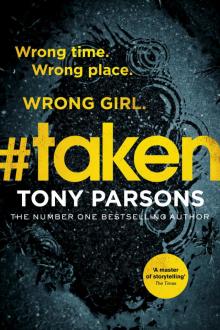 #taken
#taken The Family Way
The Family Way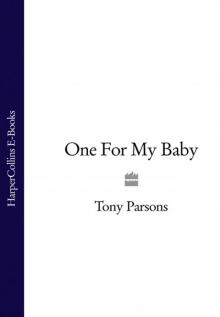 One For My Baby
One For My Baby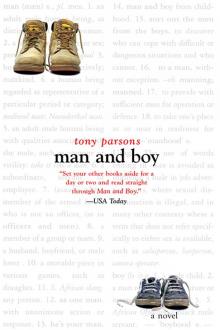 Man and Boy
Man and Boy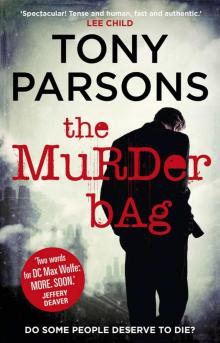 The Murder Bag
The Murder Bag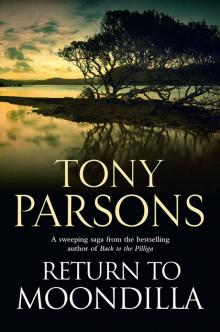 Return to Moondilla
Return to Moondilla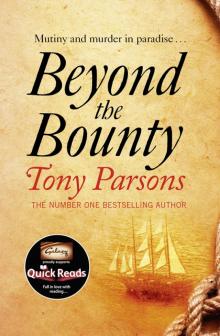 Beyond the Bounty
Beyond the Bounty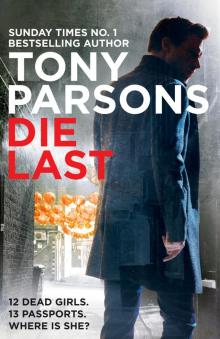 Die Last
Die Last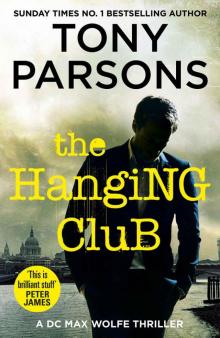 The Hanging Club (DC Max Wolfe)
The Hanging Club (DC Max Wolfe)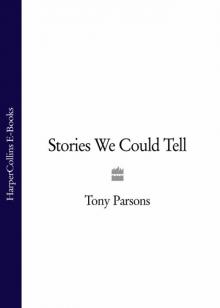 Stories We Could Tell
Stories We Could Tell Return to the High Country
Return to the High Country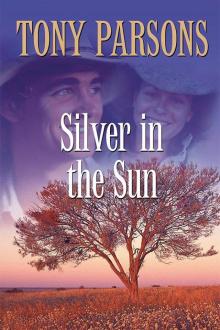 Silver in the Sun
Silver in the Sun My Favourite Wife
My Favourite Wife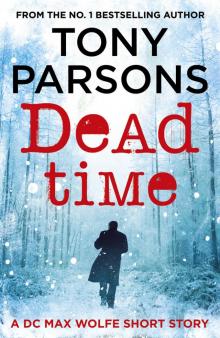 Dead Time
Dead Time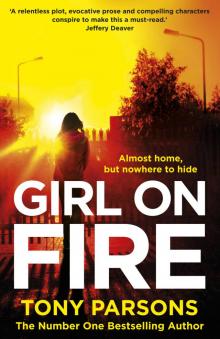 Girl On Fire
Girl On Fire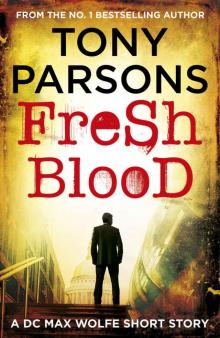 Max Wolfe 02.5 - Fresh Blood
Max Wolfe 02.5 - Fresh Blood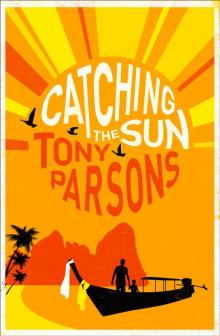 Catching the Sun
Catching the Sun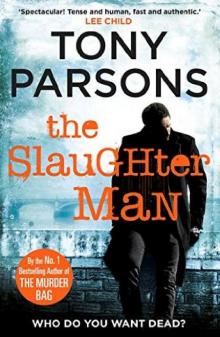 The Slaughter Man
The Slaughter Man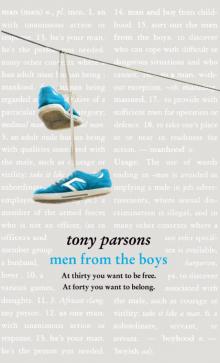 Men from the Boys
Men from the Boys Man and Wife
Man and Wife Valley of the White Gold
Valley of the White Gold Back to the Pilliga
Back to the Pilliga The Call of the High Country
The Call of the High Country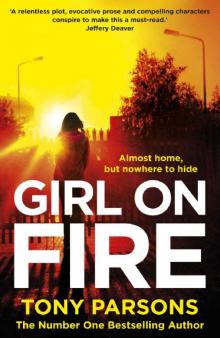 Girl On Fire_DC Max Wolfe
Girl On Fire_DC Max Wolfe